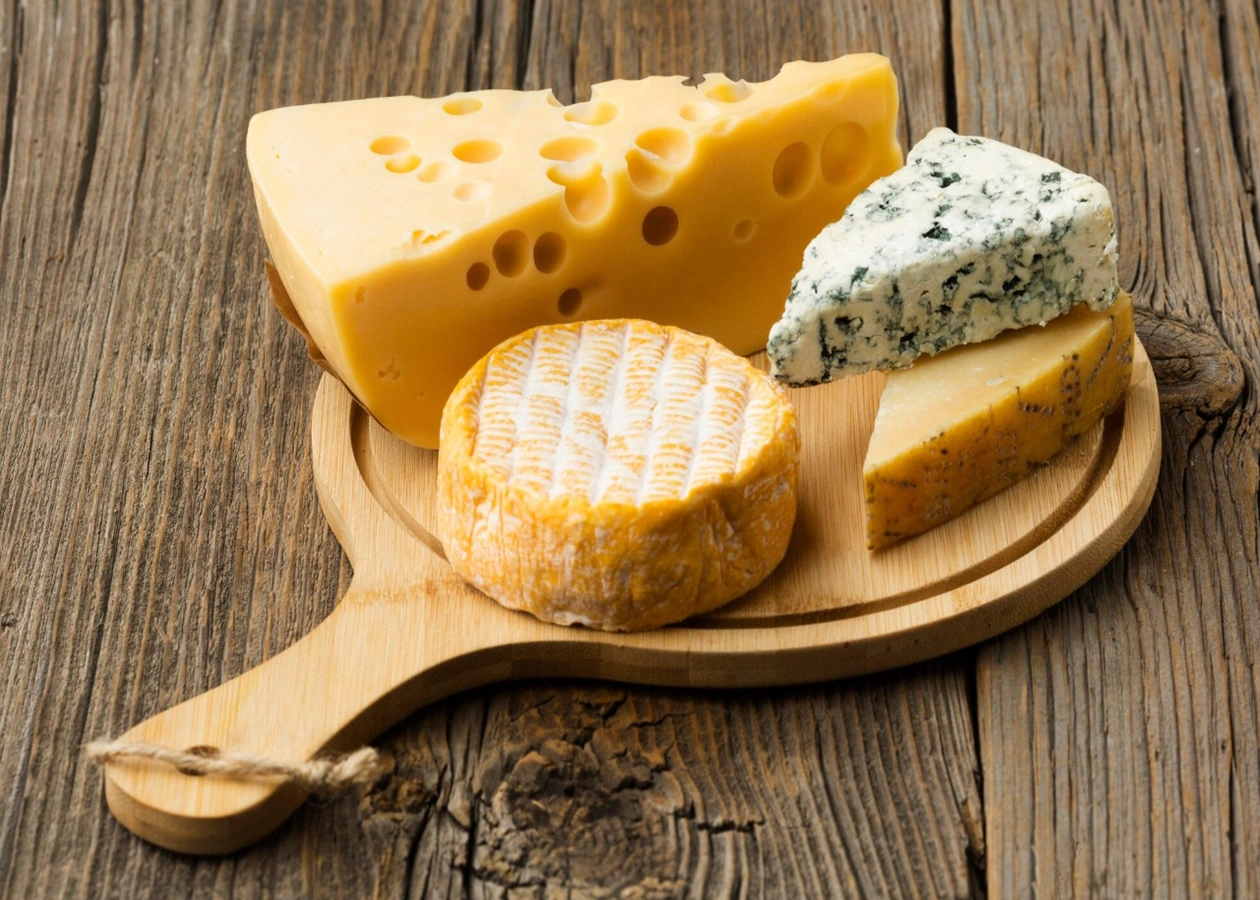
To eat or not to eat cheese on Carnivore Diet is one of the most debated questions in the Carnivore community. On the one hand, it is animal-based, nutrient-rich, and delicious. On the other hand, it contains carbohydrates, lactose, casein, and sometimes additives that make strict carnivores suspicious. So, let’s learn all about the pros and cons of cheese and variations of the Carnivore Diet to decide whether to include cheese or not.
The main principle of the Carnivore Diet is balancing macronutrients (fat, protein, and carbohydrates) based on your metabolic flexibility. The goal is to reduce inflammation, regulate hormones, and manage weight by minimizing carbohydrates.
To do so, you should use a Carnivore Diet Macro Calculator and eliminate all plant foods and consume only animal-based products.
While meat, fish, and eggs are the basic food sources, dairy products like butter, cream, and cheese fall into a gray area.
Some see them as natural additions to the diet because they are animal-based, while others avoid them for containing carbohydrates.
To solve this problem, we should remember that Carnivore is the last level of the Primal Diet and consists of different variations. Low-carb dairy products like butter, cheese, and cream are allowed in some variations and excluded in others.
We should also bear in mind that the levels of the Primal Diet are like a spectrum, and the amount of carbohydrates we eat based on our metabolic flexibility decides which level we are in.
Learn More: Can You Drink Milk on Carnivore Diet? What Are Pros & Cons
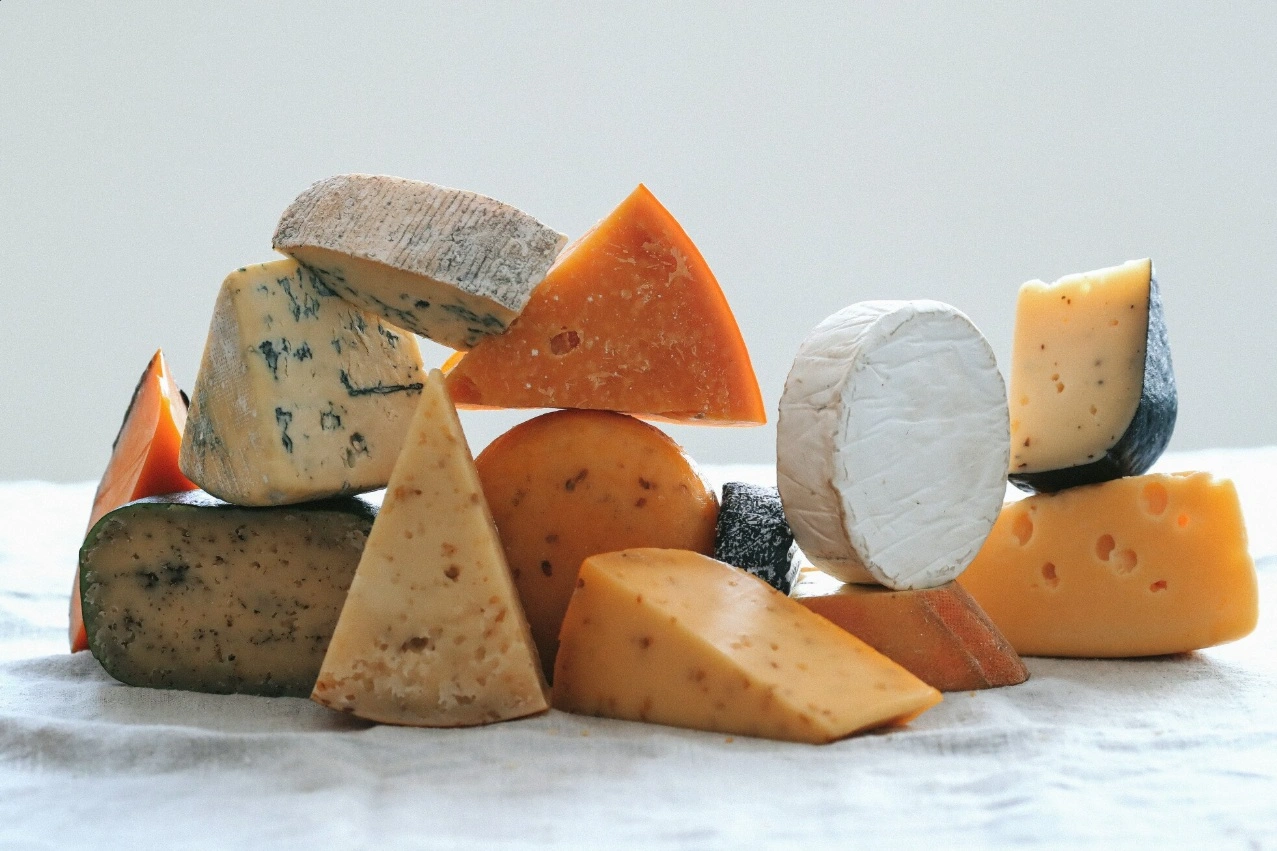
The three main levels of the Primal Diet include the Low-Carb Diet, the Keto Diet, and the Carnivore Diet. The table below summarizes these levels, their goals, and foods allowed in each.
The Carnivore Diet itself has different variations based on the number of carbohydrates you can cut or consume daily. There are two main variations as Strict and Relaxed Carnivore.
Learn More: 20 Best Grass Fed Butter Brands and Why They Are the Best
So, where cheese falls depends on why you are following the Carnivore Diet:
If you decide to include cheese on Carnivore Diet, you’d better know that not all cheeses are equal, and their lactose content makes all the difference.
Learn More: Smart Carnivore Diet Snacks Based on the Science of Satiety
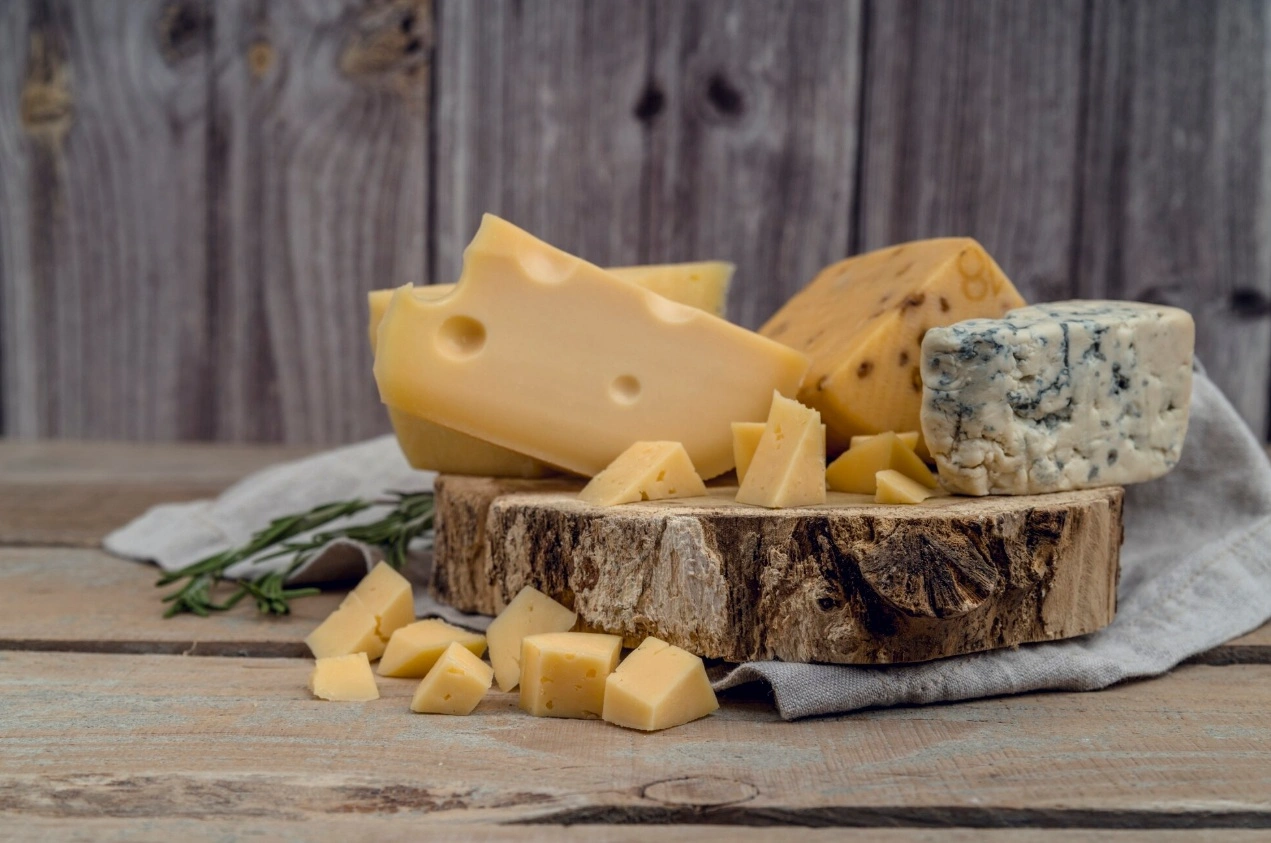
As cheese ages, its lactose content decreases. Lactose is a kind of sugar that naturally exists in dairy products like cheese. Aged cheeses are nearly lactose-free, while fresh or soft cheeses contain more lactose, which comes from milk.
The table below compares different types of soft vs. hard cheese and shows if they are Carnivore-friendly.
So, according to the table above, aged, hard cheeses, such as Parmesan, cheddar, and Gruyere, are lower in carbohydrates and most compatible with the Carnivore Diet.
Processed cheeses can contain hidden starches or vegetable oils, which makes them unsuitable for the Carnivore Diet.
It is wise to always check the label of the cheese you are buying. Even small amounts of starch or fillers can sneak into processed cheese slices or spreads.
Soft and fresh cheeses like mozzarella are higher in lactose and can disrupt progress for sensitive people and trigger bloating, stalls, or cravings. But how about cottage cheese? Is cottage cheese Carnivore?
Learn More: 20+ Carnivore Diet Snacks You Should Try to Boost Energy
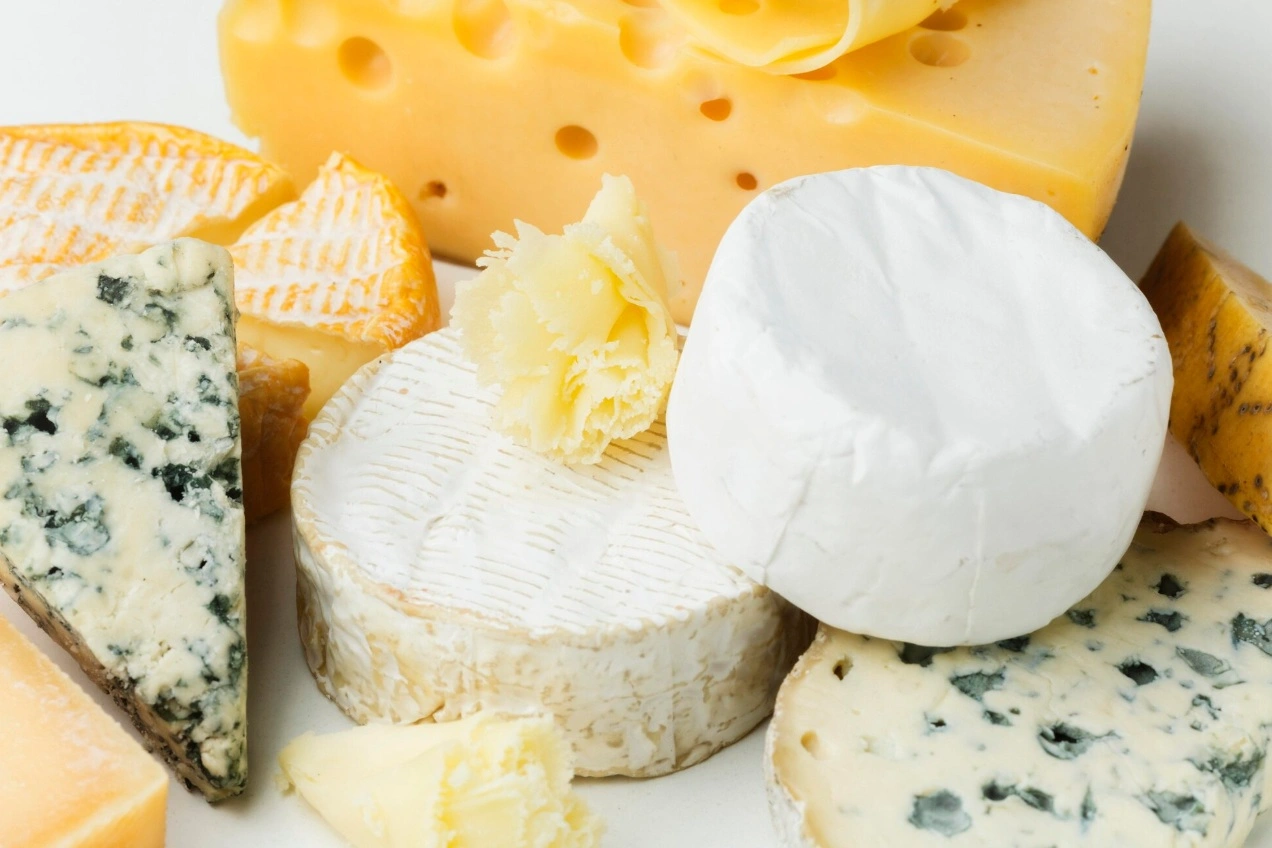
Let’s focus on cottage cheese because it causes the most confusion [1] [2].
Cottage cheese is a soft and fresh cheese that:
Learn More: The Best Carnivore Desserts: Carnivore Diet Creamy Cheesecake
On the negative side, cottage cheese
All in all, if you are doing Carnivore for strict weight loss, autoimmune healing, or gut reset, skip cottage cheese. But if you tolerate dairy and want a convenient protein snack, you can include small amounts and track your body’s response.
You can also check the nutrients of different kinds of Carnivore cheese to choose more easily if you aim to include cheese in your diet.
Learn More: Do I Need Carnivore Diet Supplements to Boost the Results?
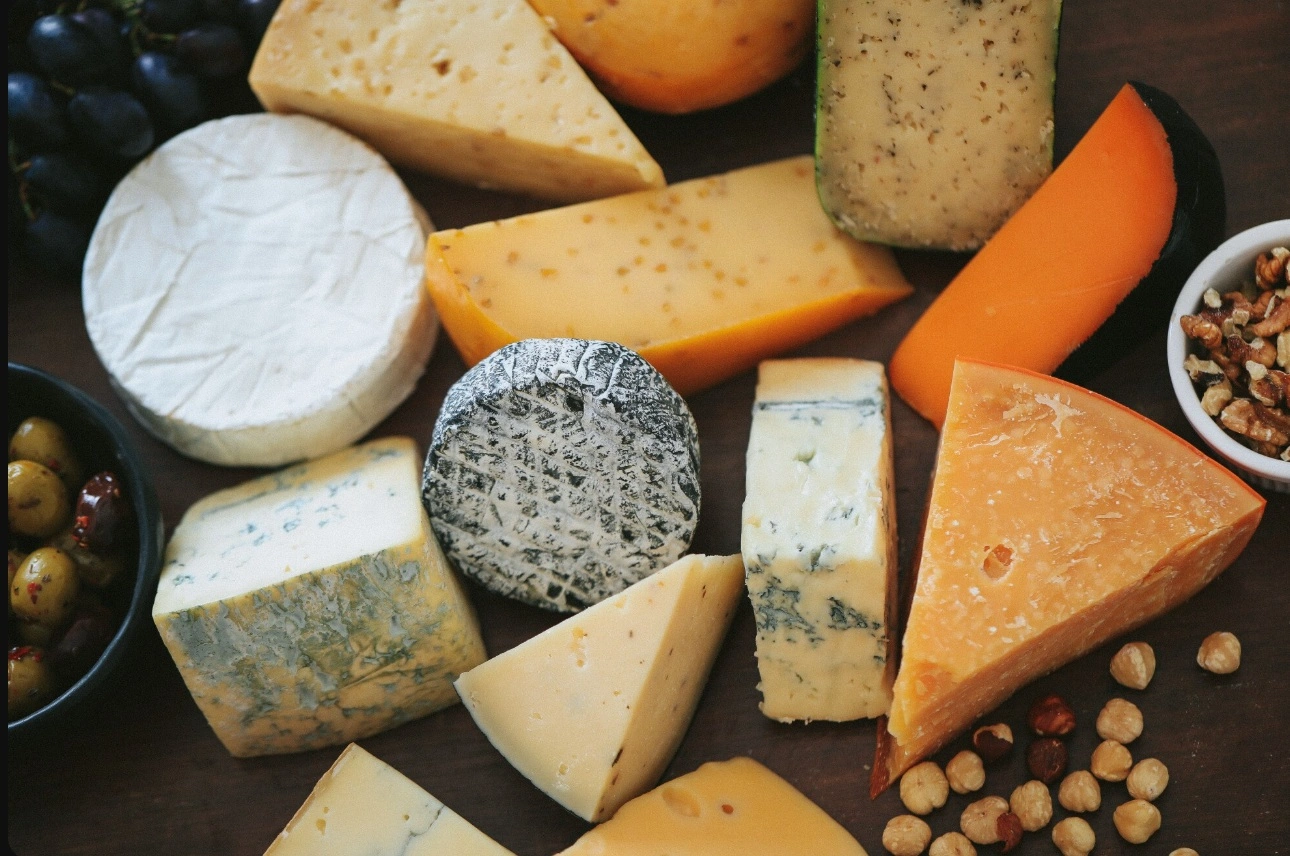
The following table compares the average nutrients found in 100 grams of the most suitable kinds of cheese on Carnivore Diet. The data is retrieved from USDA [3] [4] [5] [6]:
Another factor that helps us decide whether to include cheese on Carnivore Diet or not is weighing its health benefits and risks.
Learn More: 5+ New Carnivore Diet Desserts to Satisfy Cravings + Recipes
Cheese can bring several nutritional benefits, especially if you eat it in moderation and choose wisely.
Learn More: 15 Amazing Carnivore Diet Recipes You Haven’t Tested Before
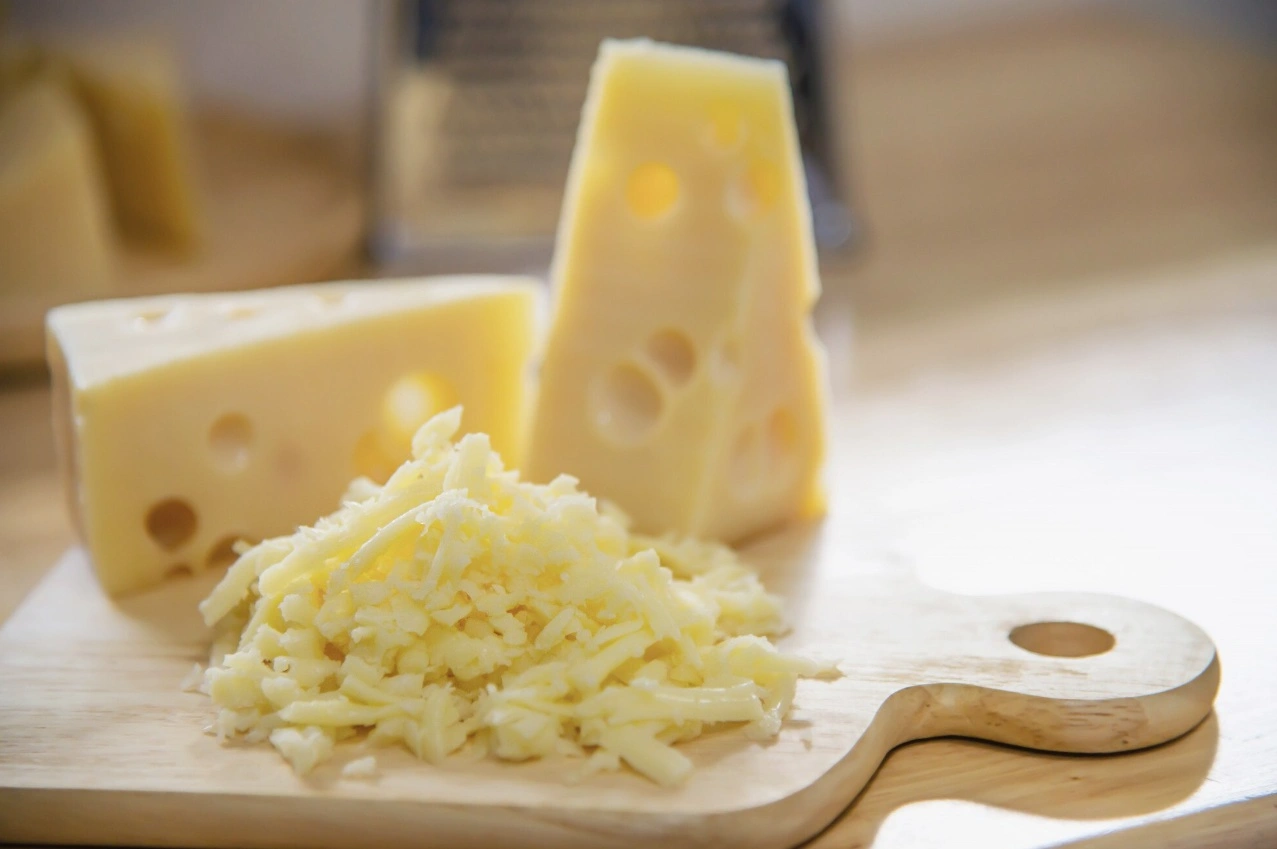
Like all good things, cheese can cause problems if eaten too much.
So, if too much cheese can be dangerous on a Carnivore Diet, how much can be enough?
Learn More: How to Lower Cholesterol on Carnivore Diet? 10 Approved Ways
There is no rule about how much cheese is enough on a Carnivore Diet, and you need to consult Carnivore Doctors or a Carnivore Coach to determine the suitable amount.
But generally, you can use the following guideline:
Cheese can be beneficial, but portion control is crucial. So, think of cheese as a condiment or snack, not a main food.
If you choose to include cheese in your Carnivore Diet meal plan, you can use the following snacks and Carnivore Diet recipes without negatively affecting your Carnivore Diet results.
Learn More: 10 Approved Ways to Boost Carnivore Diet Weight Loss Results
Cheese can help you boost energy and bring variety to your Carnivore meals if chosen wisely and eaten in moderation.
Aged, hard cheeses are the most suitable options on the Carnivore Diet as they provide protein, minerals, and flavor with minimal lactose.
It is best to avoid cottage cheese and soft cheeses if your goal is strict fat loss, gut healing, or relief from autoimmune conditions.
Remember that the Carnivore Diet is about improvement, not perfection. You can always try different cheeses, monitor your results, and adjust accordingly.
Learn More: Carnivore Diet Meal Ideas + The Best Carnivore Diet Recipes
Cheese on Carnivore Diet can help some individuals boost their results, but block others from achieving their goals. Individual conditions and needs vary, so you should choose the way that best fits your status.
You can always consult Carnivore Doctors near you or ask any questions in the Carnivore Community, and gradually tweak your method to get the best results.
Let’s answer the most frequently asked questions about cheese on Carnivore Diet.
Not technically, but if you are sensitive to lactose, it can hinder your progress.
Cheese is more Keto-friendly. Carnivore allows it if tolerated, but strict followers avoid it.
Consume aged cheeses (almost zero lactose) and avoid soft/ fresh cheeses.
Yes, due to high calories, insulin spikes, and overconsumption.
Parmesan, cheddar (aged), Gruyere, and Pecorino Romano.